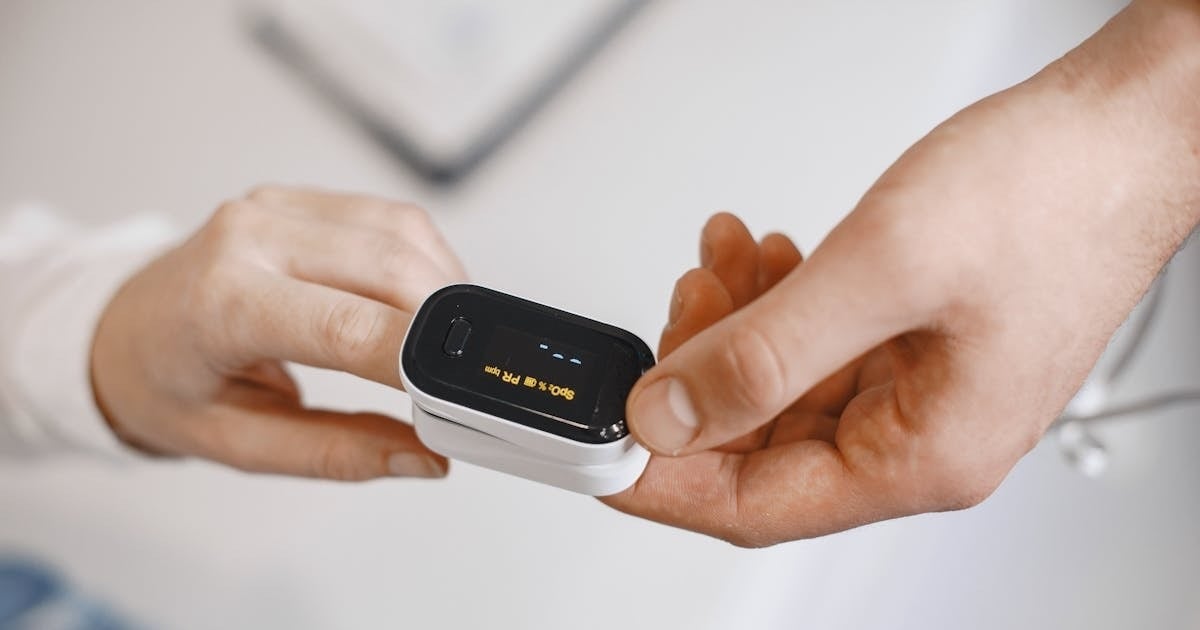Top Technologies for Digital Therapeutics in 2023

Digital therapeutics (DTx) refer to healthcare treatments that involve engaging with clinically evaluated software programs to directly enhance medical outcomes.
Digital therapeutics is expected to thrive in the market, with projections indicating significant success. By 2023, the global digital therapeutics market is estimated to be valued at USD 14.44 billion and is anticipated to reach USD 36.1 billion by 2028, demonstrating a compound annual growth rate (CAGR) of 20.11%.
 Image source: Research and Markets
Image source: Research and Markets
AI, machine learning, mHealth apps, and the Internet of Medical Things, among others, are digital health technologies that have been harnessed in this era where predictive medical decisions can be made instantaneously.
Through remote monitoring, we now see a future forhealthcare that is shaped by powerful digital solutions allowing treatments to be tailored specifically to each individual person’s needs, something which was previously unthinkable.
Let us explore how these technologies are revolutionizing patient care.
The power of artificial intelligence in digital therapeutics
By utilizing artificial intelligence data-driven decision making as well as predictive analytics, these digital health solutions have created vast opportunities for both patients and providers when it comes to informed choices leading them towards better results overall.
Predictive analytics
Predictive analytics plays a crucial role in digital therapeutics by leveraging data and artificial intelligence techniques to forecast outcomes, identify patterns, and provide personalized interventions. This advanced tool relies on past data sets combined with statistical algorithms and machine learning methods in order to predict future trends or occurrences.
The Statista’s report Perceived benefits of predictive analytics in clinical settings worldwide in 2022 shows that 72 percent of healthcare professionals in leadership positions expressed their belief that predictive analytics would yield beneficial effects on patient health outcomes within clinical environments. Similarly, 72 percent of respondents anticipated an enhancement in the patient experience through the implementation of predictive analytics in healthcare.
The other areas are:
- Staff experience
- Cost of care
- Population health management
- Health inequality
- Value-based care
Predictive analytics can be used in the field of digital therapeutics, among others, in the following areas:
- Treatment response prediction
- Disease progression modeling
- Risk stratification
Harnessing machine learning for improved patient outcomes
The positive outcomes of applying machine learning in the field of medicine are confirmed with clinical evidences. Notably,the utilization of ML technology in addressing conditions like type 2 diabetes has yielded concrete and lasting improvements concerning blood pressure, BMI, inflammation levels, and liver function.
Let's examine the potential applications of machine learning in the field of digital therapeutics.
Pattern recognition
Pattern recognition is a means of employing machine learning to recognize patterns and consistencies in data. By recognizing trends and associations within patient details, healthcare professionals are able to get a clearer picture of medical conditions as well as create more effective treatment plans.
This automated form of analyzing information has plenty of practical uses such as image identification up to voice authentication, all for improving the quality care that digital health can provide in this day and age.
When it comes to technical aspect of image recognition, image processing systems can be put to work in the analysis:
- Image pre-processing – That's where images are resized and adjusted along with other aspects such as contrast or brightness.
- Image segmentation – ML specialists segment images using tools such as binary masks and edge detection.
- Feature extraction – This is where the specialists extract geometric properties of segmented lesions such as Area, Perimeter, Greatest Diameter, Circularity Index, Irregularity Index.
- Classification – k-nearest neighbor algorithms (k-NN) and support vector machines (SVM) are used to enable image classification.
Sophisticated image processing systems are combined with classical machine learning algorithms: k-Nearest Neighbours (k-NN) and Support Vector Machines (SVM). Both can be used as binary classification tools for, among others, skin cancer.
Adaptive treatment strategies
By making use of machine learning algorithms such as RNN-based or transformer-based encoder–decoder structured models for analyzing time series data in the field of digital therapeutics, the treatments are optimized.
Consequently, it is possible to adjust therapies depending on patient progress and response so that every person gets a unique treatment tailored specifically for their needs, which will dynamically evolve over time:
- Personalized treatment selection
- Outcome prediction
- Dynamic treatment adjustment
- Sequential decision making
- Side effect prediction
- Adaptive clinical trials
AI-driven adaptive treatment use case
The study published in European Psychiatry Journal on AI-driven adaptive treatment strategies in internet-delivered CBT aimed to assess the accuracy of machine learning algorithms in predicting treatment outcomes for individual patients receiving Internet-delivered Cognitive Behavioural Therapy (ICBT).
Data from over 6000 patients with depression, panic disorder, or social anxiety disorder were used. Eight different machine learning methods were trained using various data sources, including symptom measures, therapist-patient messages, and homework reports.
The results showed that the machine learning algorithms consistently outperformed chance-level predictions, with accuracy ranging from 56% to 77%. These algorithms performed better than a previous Adaptive Treatment Strategy trial. The study concluded that machine learning algorithms surpassed the predictive capabilities of the previous strategy, even without therapist input.
The next steps involve visualizing key contributing factors and further improving predictive power using techniques like Ensemble Learning.
These findings indicate the potential of machine learning in predicting treatment outcomes and enhancing Adaptive Treatment Strategies in ICBT.
The role of mHealth apps in digital therapeutics
Mobile apps are another digital therapeutic products that have the capability in making health care services more accessible and encouraging greater patient engagement.
Through these mHealth applications, individuals can easily access medical information without needing an appointment, lessening the need for face-to-face interaction with doctors.
Mobile app technology empowers patients to take charge of their well-being, resulting in improved outcomes and reduced healthcare expenses. mHealth is widely used in wellness and fitness apps, providing users with personalized health coaching and support for their mental well-being.
The anticipated size of the mobile health apps market in the United States is estimated that the overall market for mHealth apps will surpass 50 billion U.S. dollars by 2025. This projection represents a substantial growth compared to the approximate value of two billion dollars recorded in 2016.
When it comes to other countries, mobile applications user share in select countries 2022, India and China emerge as the clear frontrunners, holding a significant market share of 70 percent and 66 percent respectively.

Image source: Statista
The Statista Global Consumer Survey conducted in 2022 shows that 45 percent of health mobile applications users in the United States were Millennials.
What are the main benefits of mHealth apps?
- Increased accessibility: The apps on mobile devices not only reduces barriers to care, but also helps in curbing costs while improving overall patient outcomes. It is easier for people to access treatment without having an in-person visit.
- Patient engagement: Interactive features and tailored content have been found to increase patient engagement, which may lead to higher levels of adherence. mHealth apps can be used as a tool for delivering educational materials, sending out reminders about health goals, as well as providing feedback.
- Building trust between individuals and medical practitioners: Mobile applications ultimately contribute towards improved overall health outcomes through better communication and collaboration between the two parties.
- Remote monitoring: Healthcare providers are able to observe patient progress and alter treatment plans as needed. mHealth applications make it possible for doctors to remotely detect potential health problems early on while still taking privacy issues into account. This may result in lowered hospital readmissions and improved outcomes of care with patients reaping the most reward.
Internet of Medical Things
The IoMT offers the potential to revolutionize digital therapeutics, enabling healthcare providers to access real-time data and analyze it for better medical intervention. Connecting medical devices with wearable devices’ sensors directly into an internet system brings great possibilities.
With these considerations taken into account, IoMT presents a whole world of opportunity when it comes to effectively caring for patients’ health through needs today and far into the future. In 2016, the global revenues from IoT in healthcare were worth 24 billion U.S. dollars. Projections suggest that this amount will surpass 135 billion U.S. dollars by the year 2025.
The Internet of Medical Things has numerous applications in digital therapeutics. Here are some of them:
- Remote patient monitoring: The medical devices can be used to remotely monitor patient health and collect data on their condition, allowing healthcare providers to track changes and adjust treatment plans as necessary.
- Personalized treatment plans: The digital solutions can collect data on patient health and behavior, allowing healthcare providers to create personalized treatment plans that are tailored to each patient's unique needs.
- Chronic disease management: The digital health products can be used to monitor patients with chronic diseases such as diabetes, asthma, and hypertension, allowing healthcare providers to track changes in their condition and adjust treatment plans as necessary.
- Telemedicine: IoMT devices can be used to facilitate telemedicine consultations, allowing patients to receive medical care remotely and reducing the need for in-person visits
Summary
The advancement of digital therapeutics has made healthcare far more accessible and can bring about better health outcomes. Thanks to artificial intelligence, machine learning, big data analysis, mHealth apps, high quality software programs and other emerging digital health solutions medical providers can drive innovation in the industry.
It is now possible for healthcare organizations to craft personalized treatment plans that can anticipate potential risks as well as making informed decisions based on available data which then leads to improved patient results.
The advanced technologies opens up a whole new world of possibilities for digital healthcare delivery with respect to accessing quality care easily, never before have people been able to gain such advantages from treatments assisted by digital therapeutics! Now is truly an exciting time when we are witnessing so much transformation occurring in the area of modern medicine thanks largely to its recent breakthroughs.








